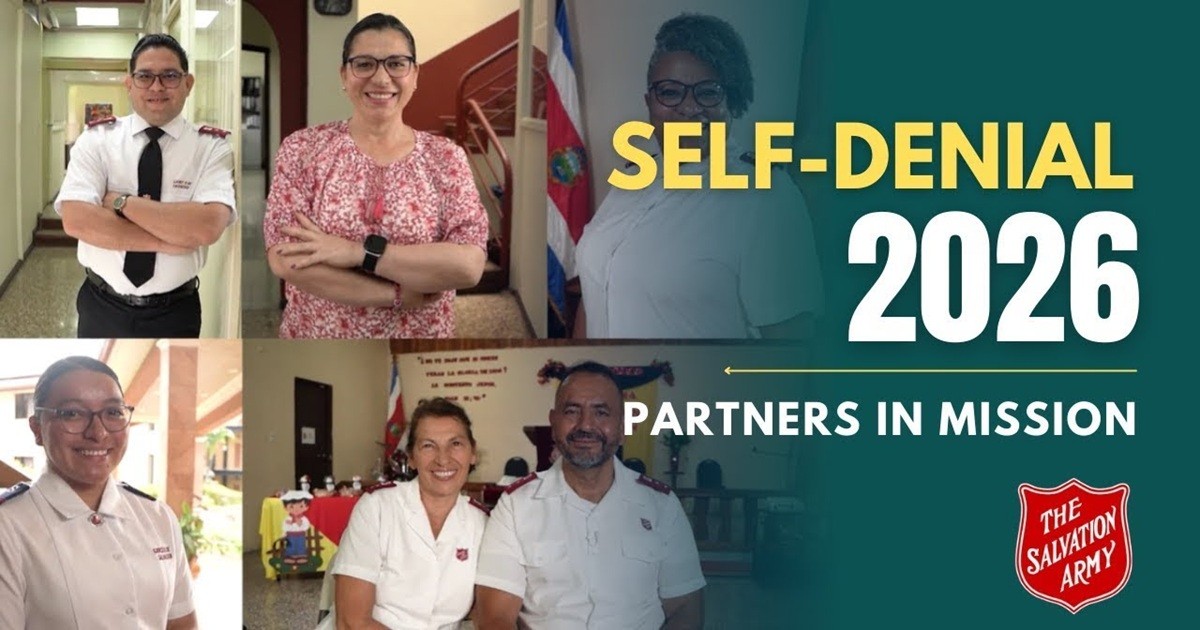Throughout its rich history, The Salvation Army has had a wide array of programs and ministries, with focus given to various groups and purposes: children, youth, music, arts, seniors, food, crafts, women and men.
Upon accepting and assuming the role of men’s ministry resource officer in the Ontario Division in 2024, it became evident that, like the list above, men’s ministry sometimes falls at the end. In recent conversations with other officers and Salvationists, I’ve heard that dedicated and meaningful men’s ministry is desired but is sometimes missing. This is not to say that ministry to men is more or less important than other ministry, but that it should be included and part of what we do.
The question is: where do you start? In any kind of ministry, whether starting a new initiative, resuming for the program year or reworking something that has been around for a while, we should be careful that we’re not just filling an open slot on the calendar, or maintaining a tradition. If a program is part of what we do, it should be done with intention and purpose. So, how can we determine purpose and intentionally plan for a thriving men’s ministry? One simple yet effective way to see if a ministry measures up is by using a tool, such as the Rotary four-way test (Is it the truth? Is it fair? Will it build goodwill? Will it benefit all concerned?) or the SWOT (strengths, weaknesses, opportunities, threats) analysis.
When men are given the opportunity to grow in faith in the Lord and in trust in their friends ... there's a lasting impact.
What might a test for a vibrant men’s ministry look like? What follows can apply to most program or ministry opportunities; however, the primary focus of this article is on men’s ministry. Here are a few questions to consider:
1: IS IT CHRIST-CENTRED?
Jesus needs to be the centre of any ministry we do as a church. If we keep Christ as our focus, a program will be more meaningful than something that is offered in the community or at a local recreation centre. And if our ministry has Jesus at the centre, one thing will be evident: it will be relational.

Cpt Josh Howard shares a message
(Photo: Billy Canning)
There’s a tongue-in-cheek joke that says no one talks about Jesus’ miracle of having 12 close friends in his 30s. While it may sound like a stereotypical statement, many would agree that relationships are something that men struggle with and have to work hard at.
This isn’t to say that fun events, such as going to a hockey game or hosting a fishing weekend, should be excluded from your church calendar. But the proof is in the pudding: ministries that are relational are the most effective.
When men are given the opportunity to grow in faith in the Lord and in trust in their friends, in settings such as prayer gatherings, small groups or Bible studies, there’s a lasting impact. And it’s not just felt within that group. The impact also makes its way into a man’s daily life at home, at work and with family and friends.
2: IS IT FEASIBLE?
Before we start a new program or rework an existing one, we first need to consider if it’s even possible. Ideas are great and it’s good to use our imaginations, but if something can’t be sustained, then it’s doomed from the beginning.
When we think about the feasibility of a ministry, it’s not just about finances, although that should be part of the conversation. Feasibility also includes things such as location, duration, leadership and succession plans. In the Army context, we know there is an ebb and flow to leadership, and that officer changes are not so much an “if” but a “when.” Although this is true, involving your officer in the conversation should be a starting point: talk with them so they can support your new ministry and provide helpful guidance and resources.
There can be good intentions behind any program or ministry, but we should consider if it’s sustainable. Instead of planning something that will take a lot of prep work, start with something attainable and let it grow. Starting something too big, that’s not realistic in the long run, is setting yourself up for failure. If it’s not sustainable, it’s not feasible.
The men’s ministry is called Ascent, with the tagline, “For men, by men, united by Jesus”
(Photo: Billy Canning)
Starting simple can be a good testing ground. I’ve heard of simple ministries that started organically and then grew into something bigger. This was the case for one congregation where a small group of men met for breakfast at a local restaurant. They eventually had to move the gathering to their church because the numbers had grown to more than 30 men attending each month.
There’s also no need to reinvent the wheel. Have conversations with other corps that are running a men’s ministry to see what’s working for them. See if you can visit their programs and gather ideas. That said, you shouldn’t feel the need to replicate what you see others doing. Your context is different from theirs; be willing to change and adapt according to what is feasible in your setting.
3: IS THERE ROOM FOR GROWTH?
Someone asked me recently if there’s a stereotype that men’s ministry is geared toward “older guys.” A lot of men my generation or younger might think of men’s ministries as something for our dads or grandfathers. You may be reading that and thinking, “Yes, that has been my experience.” But that does not have to be the case. When we consider the question “Is there room for growth?” it’s not just about numbers, but also about personal growth and willingness to try new things.
One of the easiest ways to change this stereotype is to involve men of a younger generation. This isn’t to say that they need to host an event or run it by themselves—or, at least, not right away. Instead, involve them in the conversation and ask what they want. Maybe it’s about sports or video games, or something that’s not on your radar, but be willing to learn about it.
This loops back to ministry being relational: in doing this, you are showing someone you are interested in them and what they like and are willing to give it a try. It showsthat you care about them.
As an example, the divisional men’s camp in Ontario has been intentional about involving men from younger and older generations on the planning committee. They have also offered a father-son camp rate, which makes it more affordable for families to attend. This provides fathers and sons the opportunity to share in the camp experience, and to grow in their relationship with each other and with God.
When people are involved in a ministry, they will be interested and invested in it. Whether it’s a large camp setting, meeting for Bible study or gathering for a weekly coffee group, make sure your men’s ministry is positioned for growth, that it’s feasible and, foremost, that Jesus is at the centre.
CAPTAIN JOSH HOWARD is the corps officer at Orillia Citadel, Ont., and the men’s ministry resource officer in the Ontario Division.
This story is from:










Leave a Comment